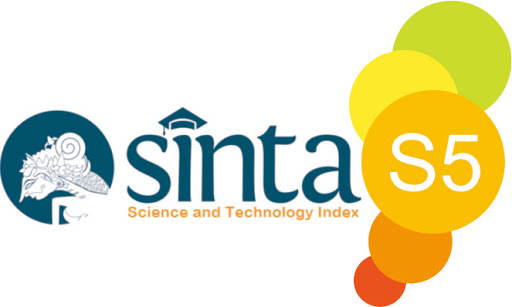The Discriminatory Impact of the European Union's Palm Oil Trade Policy on the Indonesian Economy
DOI:
https://doi.org/10.23969/paradigmapolistaat.v6i2.8518Keywords:
Biofuel, Diskriminasi, Indonesia, Kelapa Sawit, Uni EropaAbstract
The European Union (EU) Parliamentary Resolution on Deforestation of Palm Oil and Tropical Forests was the catalyst for the severe problems currently facing the Indonesian palm oil industry. Delegated Regulation No. C (2019) 2055 Final on High and Low ILUC Risk Criteria in Biofuels was later adopted by the European Commission. Considering that Indonesian palm oil products comply with international law and sustainable development goals, this is considered a form of discrimination against palm oil with political motivation and corporate competition. Despite being one of the world's largest energy consumers, the European Union imports energy to meet its needs because natural resources in the region are insufficient. The European Union established the Renewable Energy Directive to promote the use and development of alternative energy sources, such as biofuels, in an effort to reduce its dependence on imported energy. Renewable energy sources produced from vegetable oils are known as biofuels. The purpose of this research is to determine how Indonesia will be affected by the discrimination or restrictions placed on oil palm cultivation by the European Union. The researcher adopts an attitude of economic diplomacy, and the fundamental premise is that the palm oil market must be closed to protect the environment. The research findings suggest that in order to overcome EU prejudice against Indonesian CPO products, the EU government and its citizens must be targeted by both key palm oil industry stakeholders and the Indonesian government.
Downloads
References
“Essential Palm Oil Statistics 2017". (2017).
http://www.palmoilanalytics.com/
Baldwin, D. A. (1985). Economic Statecraft. Princeton University Press.
Berridge, G. R., & James, A. (2003). A Dictionary of Diplomacy. New York. Palgrave Macmillan.
DITJENBUN. (2017). Statistik Perkebunan Sawit 2015-2017.
http://ditjenbun.pertanian.go.id/ Djelantik, S. (2008). Diplomasi Antara
Teori dan Praktek. Graha Ilmu. GAPKI. (2017). Gambut di kebun sawit tak mudah terbakar. https://gapki.id/
Hufbauer, G. C., Elliot, K., & Schott, J. (1985). Economic Sanction
RECONSIDERED. Peterson Institute.
Kaempfer, W. H., & Lowenberg, A. D. (2007). Chapter 27 The Political Economy of Economic Sanctions. Handbook of Defense Economics 2.
Kaminski, T. (2017). Political Players? Sovereign Wealth Funds’
Investments in Central and Eastern Europe. Łódź University Press.
KEMENDAG. (2017). 10 Komoditi Utama dan Potensial.
KEMENPERIN. (2017). Prospek dan Permasalahan Industri Sawit.
Killian, P. M. (2012). Paradigma dan Problematika Diplomasi Ekonomi Indonesia. Global & Strategis, 6(2). https://journal.unair.ac.id/download- fullpapers-jgsd095c88cd12full.pdf
Limanseto, H. (2021). Industri Kelapa Sawit Indonesia: Menjaga
Keseimbangan Aspek Sosial, Ekonomi, dan Lingkungan. KEMENTERIAN KOORDINATOR BIDANG PEREKONOMIAN REPUBLIK INDONESIA. https://www.ekon.go.id/publikasi/de tail/2921/industri-kelapa-sawit- indonesia-menjaga-keseimbangan- aspek-sosial-ekonomi-dan- lingkungan
LITBANG. (2017). Kesesuaian Lahan Untuk Kelapa Sawit Di Indonesia. http://peternakan.litbang.pertanian.g o.id/
Minyak Kelapa Sawit. (2017). https://www.indonesia-
investments.com/ Morgan, T. C., & Schwebach, V. L. (1997). Fools Suffer Gladly: The Use of Economic Sanctions in International Crises. International Studies Quarterly, 41, 27–35.
NASA. (2017). Manfaat kelapa sawit bagi kehidupan manusia.
http://kelapasawit.ptnasa.net/
Nugraha, M. F. (2021). Analisis Strategi Perlawanan Indonesia Dalam
Diskriminasi Kelapa Sawit Oleh Uni Eropa. Al-Adalah: Jurnal Hukum Dan Politik Islam, 6(1). https://doi.org/10.35673/ajmpi.v6i1. 1458
Penulis PS Team. (1992). Kelapa sawit “Usaha budidaya, pemanfaatan hasil dan aspek pemasaran”. Penebar Swadaya.
Pradhana, M. A. (2020). Analisis Perubahan Sikap Uni Eropa
Terhadap Impor Minyak Kelapa Sawit Indonesia. Journal of International Relations, 6(4).
Risza, S. (1994). Kelapa Sawit “Upaya Peningkatan Produktivitas.”
Kanisius.
Suwarno, W. (2019). Kebijakan Sawit Uni Eropa dan Tantangan bagi
Diplomasi Ekonomi Indonesia. Jurnal Hubungan Internasional, 8(1). https://doi.org/10.18196/hi.81150
Tribunnews. (2017). Perusahaan Besar yang Punya Kebun Kelapa Sawit Luas Ternyata Tak Berkantor di Indonesia. http://www.tribunnews.com/
Downloads
Published
Issue
Section
License

Paradikma Polistaat: Jurnal Ilmu Sosial dan Ilmu politik is licensed under a Creative Commons Attribution-ShareAlike 4.0 International License
In order to be accepted and published by Paradigma POLISTAAT: Jurnal Ilmu Sosial dan Ilmu politik, author(s) submitting the article manuscript should complete all the review stages. By submitting the manuscript the author(s) agreed to these following terms:
1. The copyright of received articles shall be assigned to Paradigma POLISTAAT: Jurnal Ilmu Sosial dan Ilmu politikas the publisher of the journal. The intended copyright includes the right to publish articles in various forms (including reprints). Paradigma POLISTAAT: Jurnal Ilmu Sosial dan Ilmu politikmaintain the publishing rights to the published articles.
2. Authors are permitted to disseminate published article by sharing the link/DOI of the article at Paradigma POLISTAAT: Jurnal Ilmu Sosial dan Ilmu politik. authors are allowed to use their articles for any legal purposes deemed necessary without written permission fromParadigma POLISTAAT: Jurnal Ilmu Sosial dan Ilmu politik with an acknowledgement of initial publication to this journal.
3. Users/public use of this website will be licensed to CC BY-SA (Attribution & ShareAlike).















